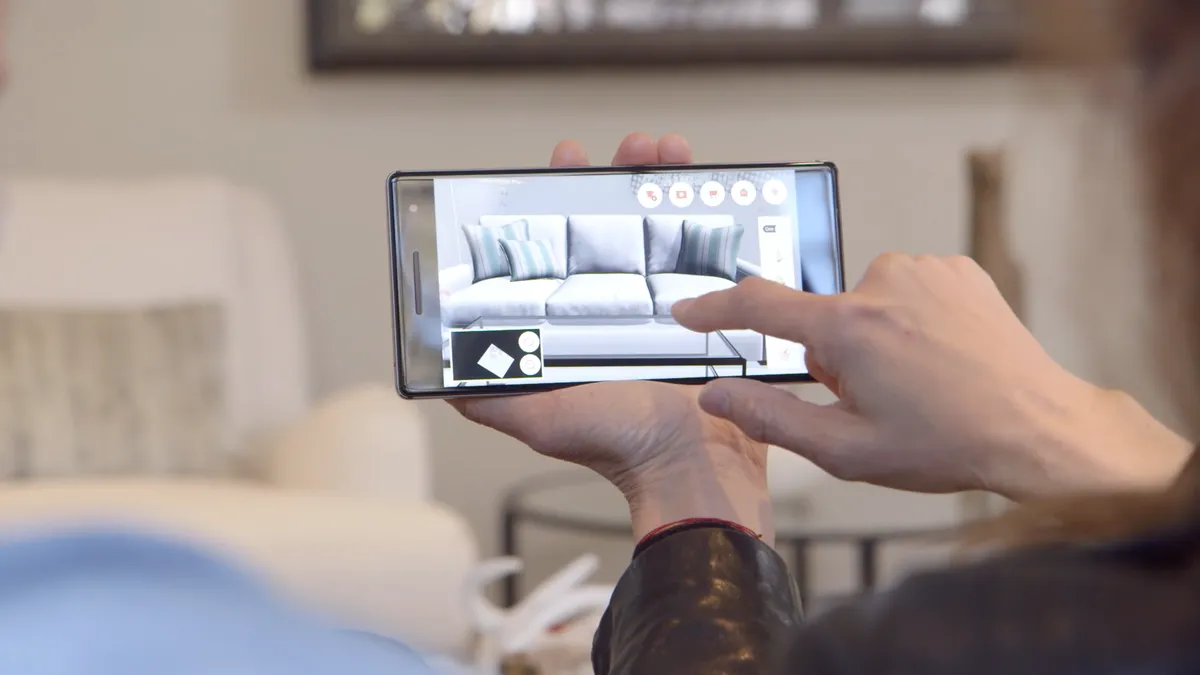Technology is an enabler of great customer experience, and its leaders have to figure out how to modernize the front and backend to bring that experience up two to three notches, eliminating friction and injecting fun.
Yasir Anwar joined Williams-Sonoma, Inc. in February as CTO and CDO to lead store technology and improve the digital customer experience across the company's brands, including Pottery Barn, West Elm and Williams-Sonoma. Anwar was also tasked with overseeing the company's subsidiary, Outward, Inc., an augmented reality 3D imaging startup acquired last year for $112 million.
In his first calendar year at the company, Anwar has piloted several new technologies, including in-house machine learning tools and Kubernetes, and set out a busy innovation agenda for 2019.
Anwar is working with an evolving, living road map, layering on applications for experiences such as asset digitization, artificial intelligence and virtual reality. With market pressures and competition forcing continuous change for the company, he is pushing back with advanced technology systems.
Williams-Sonoma and ... AI?
AI and machine learning are factoring heavily into a modernization strategy for Williams-Sonoma, and the company is continuing to build up in-house talent to help automate, deliver and build the customer experience through technology, Anwar said, in an interview with CIO Dive.
In the past, Williams-Sonoma has used a vendor product for its recommendation platform, but for the first time, the company is building an in-house machine learning recommendation tool. It is already testing pilots in two zones of recommendations.
Results have been promising thus far, and Anwar wants to be more flexible and nimble with experiments next year, hopefully replatforming or replacing the current recommendation engine with the in-house tool.
Outward is focusing on comprehensive scale and pushing visual to new levels, according to Clarence Chui, CEO and co-founder of Outward. The subsidiary has already helped Williams-Sonoma launch the Design Crew Room Planner, a space planning tool, across its brands in October.
Increasingly, AI and ML are intersecting with the work of the 3D visualization company, helping support some areas of automation and containerization, Chui said, in an interview with CIO Dive.
Williams-Sonoma launched its first pilot for visual search this year in the Pottery Barn brand, allowing customers to take pictures of items and search the company's product catalog. AI and ML capabilities are crucial for pulling off such image-based computing systems.
All of these efforts are part of a larger operation to provide a guided experience for users. A point of pride in Williams-Sonoma is its in-house designers, and the company wants to leverage the learnings from its experts to help customers with room planning.
This means using technology to show customers what an item would look like in their space, how they can place to it best optimize the area and what accessories would pair well.
Building on 2018 pilots
From integrating visual search and loyalty programs to buy online, pick up in store capabilities, Williams-Sonoma has made inroads into advanced technologies that it will continue improving on next year with the help of performance data.
The company's recent Kubernetes pilot proved successful, and now the Anwar's team is figuring out how to provide a framework with their applications that can be delivered by teams at scale, also taking into account their public cloud strategy. Two teams are already using Kubernetes for production use, and the company hopes to leverage the container orchestration platform at scale in 2019, Anwar said.
They also have to figure out how much to automate in a containerized environment, taking into account system sophistication and contractors that might be working with different templates. Implementing Kubernetes infrastructure across environments with different levels of maturity will be a challenge for the company in coming months.
In 2019, the company also plans to replatform its search solution and supply chain, applying machine learning to the latter to improve transparency and accuracy for customers.
Also on the customer-facing front, POS systems are the crucial connect of supply chain to customers, and a difficult or vulnerable sales system could drive away customers. The time to replatform for Williams-Sonoma brands is coming, according to Anwar, who wants a more modern, mobile-enabled system for stores.
A pilot is already in place at two stores, and next year he hopes to roll out the new POS systems throughout the company.
With more technology points comes more data to measure and track. Like any retail organization, even Williams Sonoma has to deal with siloed data sitting around.
The company is building a new data platform, though Anwar does not want to call it a "data lake" because of the connotations "it's sitting there in a lake and nobody's using it." The new, integrated data platform will help unify and democratize data across the company, making it available for analytics, AI and ML.





















